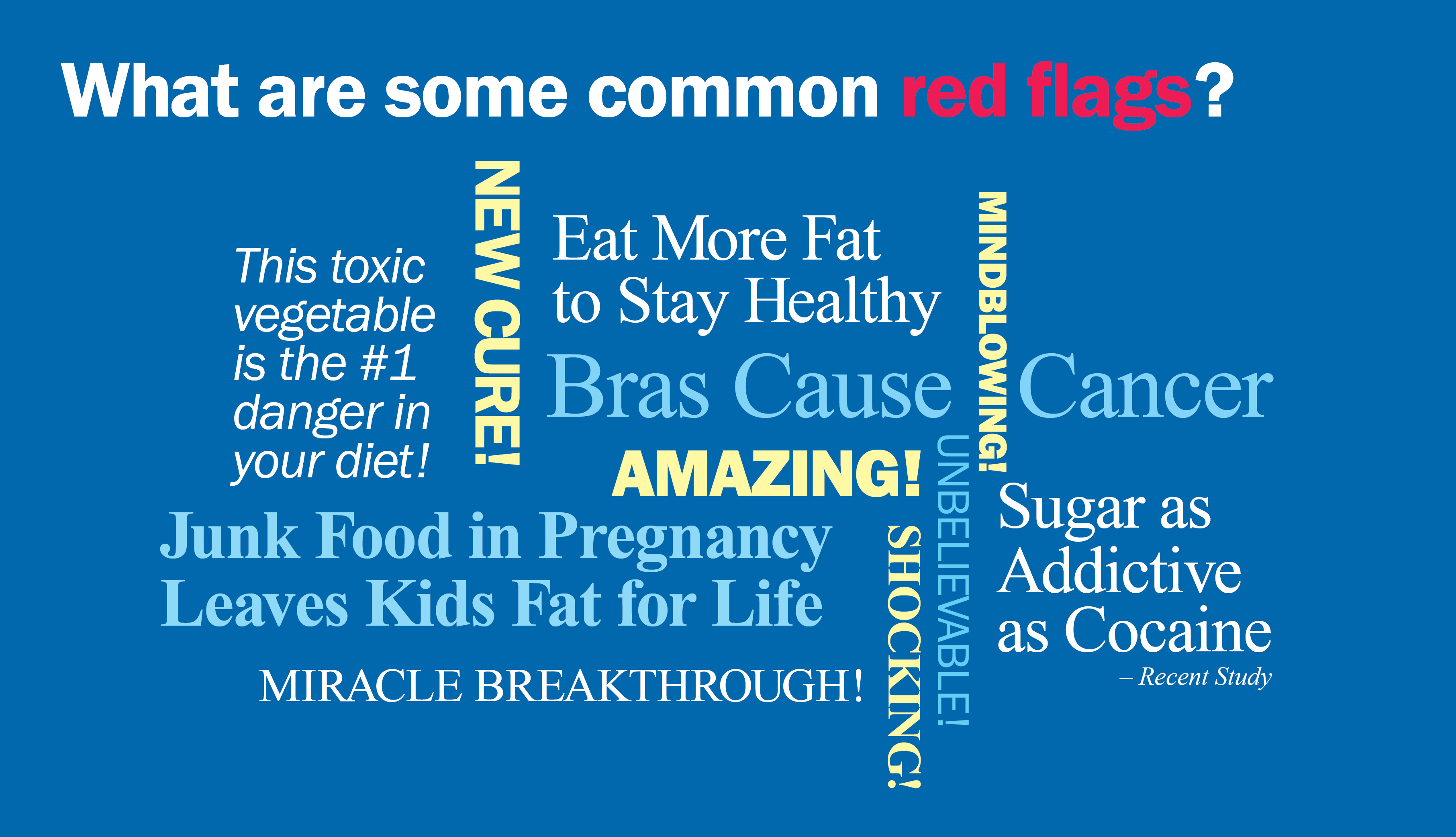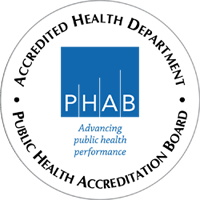
When sifting through health information online, some common red flags exist that can alert you to potential inaccurate or misleading information. We have outlined a few of them below.
- Oversimplification
The team ate tacos before the game and they won, so the tacos must be the reason they won. Umm, no. Context is important, and usually there are many factors that should be considered when thinking about why something occurred. If an online health “recommendation” goes against the guidance of all major medical associations, groups and organizations, and it seems too good or too simple to be true, it probably is. Examples of reputable health associations and organizations include the American Academy of Pediatrics, Academy of Nutrition and Dietetics, American Academy of Family Physicians and National Institutes of Health. - Shocking or extreme information
If the health article or story you’re reading is so shocking you can’t believe it, then you probably shouldn’t. This is especially true for claims that one product or food is a “cure-all” or “secret trick” for a health problem. On the flip side, if it is so shocking it speaks to your worst fears, it’s best to look for more information. See confirmation bias here. Check out the other stories and articles on the website. - Outrageous headline
Does the headline even match the content of the story? Many don’t. If not, this may just be clickbait (clickbait is online content with a goal to attract attention and get visitors to click on a link, usually to generate online advertising revenue). - Context
Does the story provide any background information on the topic? Does it quote trusted experts? Does it offer more than one perspective? Does the story rely on just one major fact or statistic without giving context or additional information? If so, be wary. - Proof
Rarely will one study alone offer definitive proof of something. It may show a potential link, association or correlation, but that’s not the same as proof. It may suggest a change to an existing medical recommendation, but it may also state that more research is needed to be sure or to fully understand an issue. Researchers are extremely cautious when it comes to claiming they alone have proved something (If they do claim to have proved something “once and for all” with one study, credibility may be in question; look for other sources). In addition, scientific evidence counts on replication. Medical recommendations are based on a body of evidence, which usually includes many quality studies conducted by different researchers over time that show the same outcome. In other words, they show replication. Bottom line: You should not make major changes to your health based on one study. Studies are one way we learn; they are not the same as a medical recommendation. - Unknown/anonymous authors or sources
See an interesting health article on social media? Check out the URL. Have you ever heard of the author, blog or website making the health claim? Visit the “About Us” section on their website (hopefully they have one). It should be easy for you to learn who they are and who is responsible for the content. Do they have contact information: mailing address, phone number, etc.? Also, look for their credentials. See if they have any disclaimers on their website about their content. Are they really qualified to be experts in what they’re recommending or are they just offering opinions? We talk more about sources and subject matter experts here. - The messenger
Health news websites should provide information, including the medical credentials, of the people who have prepared or reviewed the material on the website. If you can’t find that information, move on. - Moneymaking
Will the author financially benefit from the health recommendation they are making? If the website with information on the “cutting edge” medical device, “miracle cure” or “groundbreaking” new diet stands to financially benefit, including conveniently selling the product on the same website, find another source. It may be a good product, but you shouldn’t base your decision solely on the organization or person who is financially benefiting. If it smells like a conflict of interest or advertising, keep looking for more information. - Adjective city
If the story is full of opinions, adjectives or overly descriptive phrases (“ridiculous,” “easy,” “best,” “worst,” “tremendous,” “rare,” “exciting” and so on), and those phrases are not in quotes or attributed to someone specific, then you’re probably reading an opinion piece or maybe even misinformation. It may be an informative opinion piece, but it should be accepted for what it is: an opinion, not necessarily fact. - Bandwagon
Avoid making an important decision about your health just because it seems "everyone else is doing it." Talk to your doctor first.



Click here to leave a comment or concern.